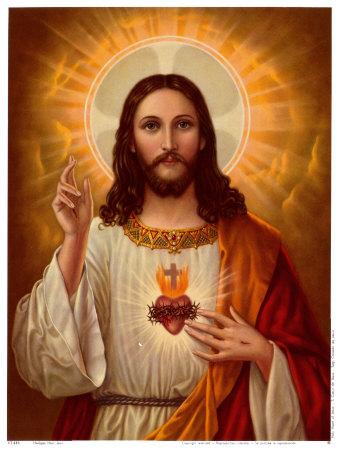Baptism
Amen, amen, I say to you, no one can enter the kingdom of God without being born of water and Spirit. (John 3:5)
The sacrament of baptism ushers us into the divine life, cleanses us from sin, and initiates us as members of the Christian community. It is the foundation for the sacramental life.
At baptism, the presider prays over the water:
Father, look now with love upon your Church, and unseal for her the fountain of baptism. By the power of the Holy Spirit give to this water the grace of your Son, so that in the sacrament of baptism all those whom you have created in your likeness may be cleansed from sin and rise to a new birth of innocence by water and the Holy Spirit. (Christian Initiation of Adults, #222A)
Freed from Sin
Baptism frees us from the bondage of original and actual sin. Water is poured in the name of the Father, the Son and the Holy Spirit. Today, the sacrament of baptism is often performed on infants, shortly after birth. Adult baptisms take place at the Easter Vigil through the restored Rite of Christian Initiation for Adults. Adults or children who have been baptized in a valid Christian church are not baptized again in the Catholic church. As we say in the Nicene Creed, “I confess one Baptism for the forgiveness of sins…”
The Catechism teaches:
"The fruit of Baptism, or baptismal grace, is a rich reality that includes forgiveness of original sin and all personal sins, birth into the new life by which man becomes an adoptive son of the Father, a member of Christ and a temple of the Holy Spirit. By this very fact the person baptized is incorporated into the Church, the Body of Christ, and made a sharer in the priesthood of Christ" (CCC 1279).
Baptismal Symbols
- Water – The waters of baptism recall Jesus’ own baptism by John the Baptist in the river Jordan. Water is a symbol of cleansing and renewal as we begin a new life in Christ. We are washed clean of sin.
- Oil – At baptism we are anointed into the life of Christ as “priest, prophet and king.” A cross is traced on the candidate’s forehead as a reminder that we are inheritors of the Kingdom of God.
- Light – The baptismal candle is lit from the Paschal or Easter candle that stands in the church as a sign of Christ’s light in the world. At baptism, we receive the light of Christ and are called forth to share this light with the world.
- White garment – The white garment that is placed upon us at baptism is a symbol of Christ’s victory over death and his glorious resurrection. Likewise, the white garment or pall that is placed over the coffin at the time of death recalls our baptismal promises and reminds us that we are destined for eternal life.
While in ordinary circumstances, sacraments in the Catholic Church are administered validly by a member of the ordained clergy, in an emergency situation, the sacrament of baptism can be administered by anyone.
In case of necessity, any person can baptize provided that he have the intention of doing that which the Church does and provided that he pour water on the candidates head while saying: “I baptize you in the name of the Father, and of the Son and of the Holy Spirit" (CCC 1284).
Guidelines for Infant Baptism
Parents are responsible for having their child baptized as soon after birth as possible. For a child to be baptized, at least one parent, or a legal guardian, must give his/her consent. In addition, for there to be a reasonable hope that the child will be brought up in the Catholic Faith, at least one parent must be a practicing Catholic, or the child must have a sponsor (Godparent) who is a practicing Catholic.
According to Canon Law of the Church, a practicing Catholic is someone who:
- Is at least 16 years old.
- Has received Baptism, Confirmation and First Communion.
- Attends Mass every week and regularly receives the Sacrament of Confession.
- If married, has been married in the Catholic Church. Cannot be divorced and re-married outside the Catholic Church.
If you are want to have your child Baptized at Sacred Heart Catholic Church:
- Contact the parish office (864-489-9453) and complete required forms.
- Parents and Godparents must attend Baptism preparation class. They are held the first Saturday of each month at 4 pm.
- Baptisms are conducted on the third Saturday of the month. 11 am in English and 1 pm in Spanish.
Other Information
If the parents or godparents reside in another parish, they may have the Baptism class in their home parish and then have a testimonial letter from that parish affirming that the class was attended. The letter also must state that the person in question is a practicing Catholic in good standing in that parish.
Baptism will not be denied if the parents are unmarried or not married in the Catholic Church, but there may be a reason to postpone the Baptism if the parents are not practicing the Faith or do not have the intention of living a life in harmony with the Catholic Faith.
The above information applies to Infant Baptisms only. If your child has reached the age of catechetical reason (2nd grade or 7 years), sacraments will be administered after they are properly catechized. Please contact the parish office to make register your child in our Catechism program.
If you wish to have your child baptised at Sacred Heart Church, please complete the Application for Baptism Form and the Elegilibilty for Sponsorship Form. The completed forms may be mailed or emailed it to the office. You will be contacted by the parish secretary to arrange an appointment to plan you child's baptism.







